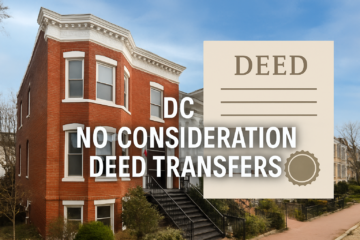Navigating the world of property deeds can be complex, and when you add the online notary process into the mix, it can become more confusing. Mistakes during this crucial process can cause significant delays and even legal issues. This guide aims to highlight common pitfalls and help you steer clear of them.
1. Overlooking State-Specific Notary Laws
Each state has its own set of laws regarding notarization. It’s vital to understand these regulations to avoid complications. Many people fail to realize that what applies in one state might be completely different in another. For instance, real property transfers often have unique notarial requirements depending on the region. Not following the correct procedure can lead to invalidated transactions, causing unnecessary stress and costs. Engaging with a knowledgeable legal adviser who understands the intricacies of your state’s requirements can alleviate the bulk of these concerns right from the start.
Furthermore, some states also mandate in-person witnesses even with online notarization. This is crucial if you’re handling transactions across state lines. An oversight here can be costly, both in terms of time and legal fees. Thus, ensuring comprehensive understanding and compliance with state-specific laws cannot be overstated. To better navigate these legal waters, a consultation with professionals like Gentile Property Law Office can provide invaluable insights.
2. Failing to Verify Identity Requirements
Proper identification is crucial for the online notary process. Ensure everyone involved has the right documents ready. This might seem like a minor detail, but a missing ID or an expired one could disrupt the whole process. Online notaries must comply with stringent verification protocols, often requiring multiple forms of ID, which must match precisely with the documents being notarized. A small mismatch can cause headaches, leading to the entire transaction needing to be restarted. It’s wise to check with the online notary service beforehand to ensure you’ve got everything covered.
In addition to personal IDs, proof of ownership documents might be required for notarizing a deed transfer. This double-check helps in avoiding forgery or fraud, which is becoming increasingly prevalent in online transactions. As you prepare, remember that attentiveness in this step is the first line of protection against potential legal challenges.
3. Neglecting Online Notary Technology Setup
Tech issues might seem trivial until they halt your transaction in its tracks. Make sure your technology is set up correctly, including reliable internet and compatible devices, for a smooth online notarization process. A stable internet connection and functioning devices are paramount—imagine midway losing connection during a crucial notary session. Unforeseen tech glitches are common but preventable with proper setup checks. Test your camera, microphone, and ensure your internet bandwidth can handle video calls without interruption.
Moreover, familiarize yourself with the platform the online notary uses. They are often equipped with features like secure room access and document sharing. Spending some time navigating these tools beforehand can expedite the process significantly, allowing you to troubleshoot any issues proactively. Guides and support teams are available from most reputable providers to walk you through setting up properly for online notarization.
4. Skipping a Thorough Document Check
Double-check your documents before submission to ensure all information is accurate and complete. A simple error can delay the process substantially. For instance, missing signatures or incorrect witness information can render a deed invalid. Some deeds may have specific fields that must be filled according to state standards, and any deviation could cause delays or rejections. It’s always worth the extra time to go through each document meticulously.
A overlooked detail, like spelling errors or uncompleted sections, often gets noticed during the notarization, drawing out the process longer than necessary. In more serious scenarios, inaccuracies can form legal disputes, particularly in title searches where undisclosed encumbrances are concerned. Consult an attorney to thoroughly vet your documents, ensuring that no stone is left unturned.
5. Assuming All Notaries Offer Digital Services
Not every notary offers online services. Verify the notary’s capabilities before starting the process to avoid unnecessary delays. It’s easy to misjudge the availability of digital notarial services, especially with the rapid expansion of technology in legal processes. Many traditional notaries still prefer face-to-face interactions, which could stall your plans if you don’t confirm their online readiness first. Engage services that explicitly provide virtual notarizations to save time and ensure readiness for digital transactions.
6. Ignoring Notary Fee Variations
Notary fees can vary greatly. Be aware of potential costs to avoid any surprises during this process. Not all online notary services are priced equally; some offer flat rates, while others may charge based on document complexity, number of services, or even urgency. Being caught off guard by an unexpected bill can add stress to what is often already a complex procedure. Request detailed fee structures upfront to mitigate this risk.
Bear in mind, certain jurisdictions set statutory caps on notarial fees, which could work to your benefit. However, this does not always apply to the ancillary services tied to online notarization, such as recording or postage, which might still carry additional charges. Thus, a comprehensive budget planning that considers all potential fees is a prudent way to manage this element.
7. Misunderstanding Witness Requirements
Some transactions might require additional witnesses. Clarify if this applies to your situation to ensure compliance with legal requirements. Not all property deed transfers are straightforward. Multi-party agreements, particularly those involving family transfers, may necessitate additional legal witnesses to validate the transaction. Missteps here can lead to legal hiccups or invalidation.
Identifying these requirements early on can save time and prevent last-minute scrambles trying to find qualified witnesses. Collaborating with a specialized property law firm can simplify this part of the process, ensuring that you remain in compliance with all legal protocols.
8. Forgetting to Secure for Long-term Access
Keep your notarized documents secure for future reference. Properly storing them digitally will help you avoid issues down the line. Many neglect this key step, underestimating the importance of securely backing up such critical documents. Over time, you might need to access them for reference or legal purposes. Digital storage solutions respect document integrity and accessibility, essential as physical copies are mislaid over time.
Consider securing encrypted digital copies, which maintain confidentiality and security, with reputable cloud storage services providing an additional layer of protection. Should discrepancies arise in the future, having a properly maintained digital record could safeguard your legal standing effectively. As part of this storage protocol, also include complementary assets such as Estate Plans—a proactive strategy ensuring that documents are available and synchronized with your legal obligations.




0 Comments